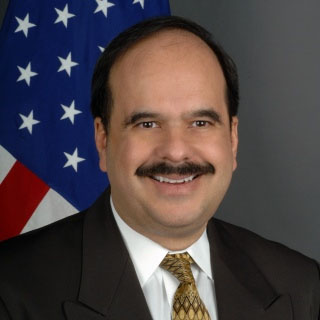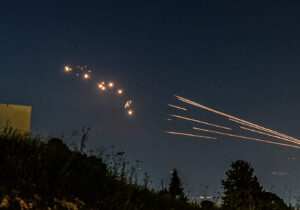The Middle East is seemingly a constant generator of disasters and calamities. This happens so often that it is easy to be jaded about the latest slaughter or uproar and miss the significance of what is happening. Earlier this month large parts of southern Iraq rose in tumult and turmoil as hot, thirsty, and angry citizens complained about unemployment, lack of services, corruption, lack of water, and lack of electricity in a country with the world’s fifth largest proven oil reserves.
While demonstrations started in Iraq’s third largest city of Basra over electricity cuts and lack of potable water, they ranged throughout the south. Airports were closed. The authorities disrupted internet service. Some troops used live fire ammunition to quell demonstrations. Ironically, one initial spark was a cut in electricity provided by Iraq’s neighbor Iran, which is also experiencing demonstrations about poor governance, corruption, water, and electricity.
What is even more interesting than the demonstrations is what they were not about this time. They were not about the usual political slogans. Not about America, not about Israel, not about Islam. This was an overwhelmingly Shia Muslim majority region complaining, among other things, about an overwhelmingly Shia Muslim government.
The demonstrations do have the backing of some of Iraq’s most important Shia clerics. The followers of the mercurial Muqtada al-Sadr, whose coalition (which included Iraq’s Communist Party) did unexpectedly well in recent elections, are playing a role. But the protestors are also supported by Grand Ayatollah Ali Sistani and his religious establishment, who aim to keep the demonstrations focused, united, and non-violent. And while Shia political and religious activism has its own particular flavor, events in southern Iraq give us a glimpse into a possible future for much of the Middle East. In fact, contemporary Iraq with all its massive flaws may represent a best-case scenario for a popular response to the coming political, social, economic, ecological debacle threatening the region.
Complaints about unemployment, lack of water and electricity, corruption, and poor governance are widespread from Iran to North Africa. Undergirding these complaints is a sense of powerlessness and desperation, of wrongs long left unredressed and of a massive deficit in human dignity. The default position of authoritarian regimes will, of course, be repression for as long as that works. One could also foresee a near future when the current torrent of migrants heading to Europe will become a flood.
But with recent polling showing that the main concerns of Arab youth are economic opportunity, education, and corruption, the strange configurations in Iraq will eventually find an echo elsewhere as people seek new, suitable vehicles to channel demands for social justice and human dignity.
Years after the Arab Spring, authoritarian Middle Eastern regimes seem ubiquitous and triumphant. They also may be extremely fragile. Jihadism and Islamism retain much of their potency and malevolent vitality, and yet there is much new questioning of those models as well. Most of the talk in the Middle East on reform is just that, empty talk. The region seems ripe for another mode of popular mobilization as a response to a wave of coming challenges the current corrupt and tired regimes will be hard pressed to meet.
Such fresh modes of popular mobilization will almost certainly involve some sort of Islamic religious appeal. The question is what forms it will take, whether it would have evolved from toxic Muslim Brotherhood or Salafist straight jackets and whether it can be combined with something else, with an alliance with the Left (as Muqtada al-Sadr did), or with secularists and Christians (in some places) or non-Arab but still Muslim minorities (in other places) to form broader fronts. The spiritual dimension of the peoples of the region is too important to be ignored. The sheer scope of the problems will require more than religious conservatives in power.
The power of such alliances will come from eschewing the usual timeworn nostrums usually manipulated by tyrants—political violence, enforcing religious orthodoxy, regional crusades—and appealing to new emerging demands such as justice, dignity, competence, and transparency. This mobilization will require the same effort at unity, focus, and non-violence that some Iraqis are trying to achieve. Faithful people are desperate for hope.
For American foreign policy, the great challenge will be to recognize early enough (and avoid smothering with a deadly embrace) these inchoate change movements that will have a religious dimension and something else. This will require perceptive diplomats with enough understanding to see through the almost certain smokescreen generated by the powerful against those from below and the peripheries who challenge their rule. Change in the region will be disruptive and could be violent. Dire circumstances ensure that it is coming whether we are ready or not.
—
Alberto M. Fernandez is president of the Middle East Broadcasting Networks, Inc. (MBN). He served as the US State Department’s coordinator for the Center for Strategic Counterterrorism Communications from 2012 to 2015, retiring from the State Department in May 2015. Fernandez has served as US ambassador to the Republic of Equatorial Guinea; charge d’affaires to the Republic of Sudan; director for Near East public diplomacy; director for Iraq public diplomacy; and in senior public diplomacy positions at the US embassies in Afghanistan, Jordan, Syria, and Guatemala. His awards include the 2008 Presidential Meritorious Service Award, 2006 Edward R. Murrow Award for Excellence in Public Diplomacy, and a 2003 Superior Honor Award for his work in Afghanistan. Fernandez has published in ReVista: the Harvard Review of Latin America, Middle East Quarterly, and the Journal of the Assyrian Academic Society.
Photo Credit: Screenshot of protestors in southern Iraq, on July 16, 2018, via Al Jazeera.






